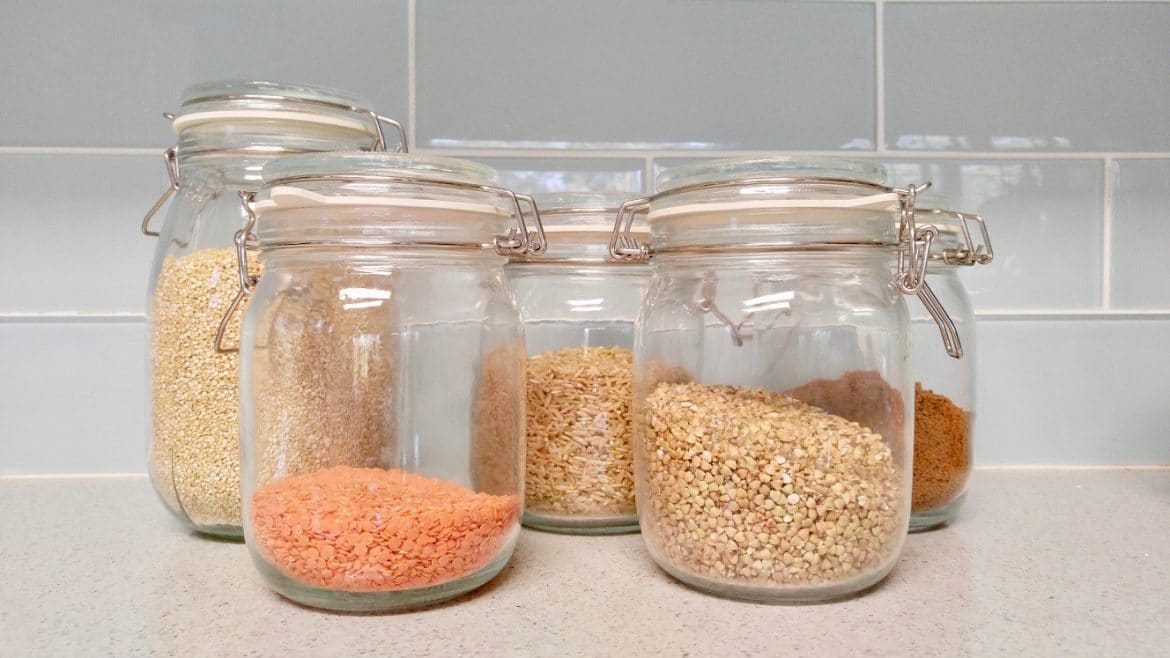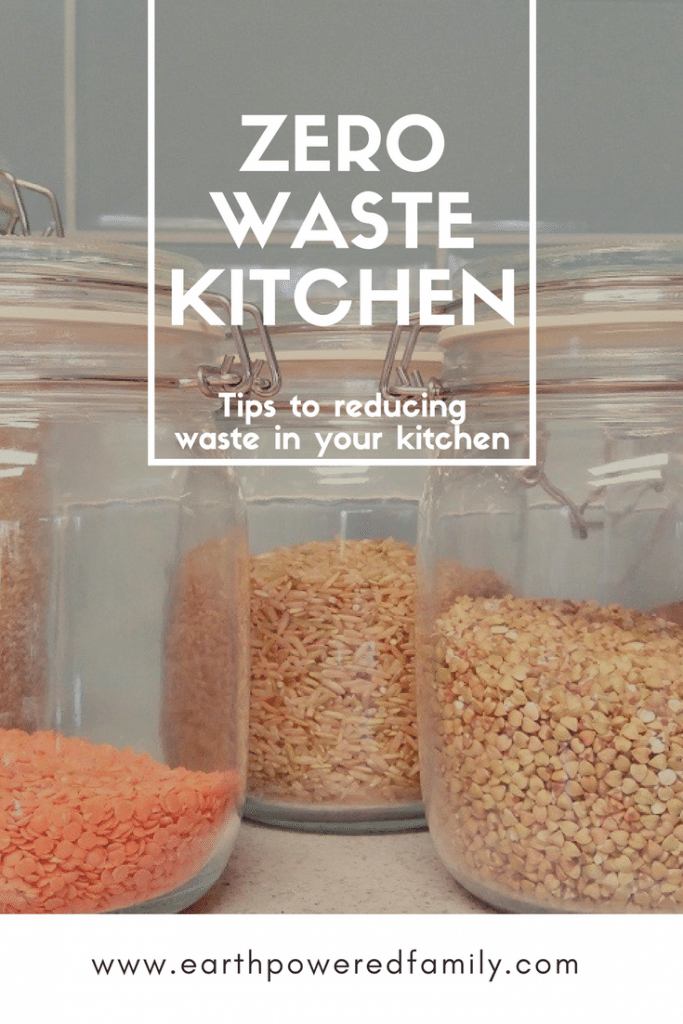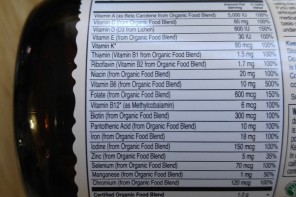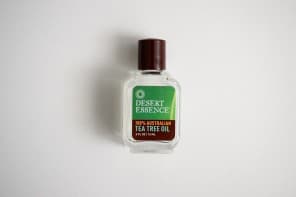Zero waste is a hot topic in the “green lifestyle” world. It basically means that you produce the least amount of trash possible. Some people go all out, producing only a jar of trash a year. For most people, including me, trash still happens, but it’s greatly reduced by making some switches and being conscious about everyday choices.
The kitchen is where most household trash seems to happen. This includes paper towels, paper plates and disposable utensils, food wrappers, aluminum foil, plastic wrap, and food scraps. But it can be pretty simple to reduce, if not eliminate, trash in the kitchen. Here are some tips to a zero waste kitchen:
Pantry:
- Buy what you can in bulk, using cloth bags and/or jars. If you have a tare weight (the weight of the container), most stores are happy to weigh containers that you bring from home.
- Skip the prepackaged snacks, or look for snacks in bulk or with less packaging. Homemade snacks are easier to whip up than you think!
- Got kids? You don’t need plastic bags! Opt for reusable cloth or silicone ones. They also make reusable stainless steel snack containers and water bottles.
- Use a lunch box instead of a paper or plastic bag for toting lunch to work or school.
Bakeware/Cookware:
- Invest in a few good quality pots, pans, and tools that will last for years. This will save you money in the long run, not to mention make cooking so much more pleasurable with quality tools.
- Find a few bakeware items like dutch ovens and casseroles with a cover to eliminate the need for aluminum foil. Some recipes call for something to be covered during baking, plus it makes it easier to store leftovers.
- Instead of using aluminum foil or parchment paper to line a baking sheet, consider a silicone baking mat. Nothing sticks to these and they are simple to clean and store.
Refrigerator/Food storage:
- Keeping the fridge clean and organized helps to greatly reduce food waste. Regularly check expiration dates and either use or freeze.
- Plastic food storage containers may be cheaper, but they don’t last very long and expose us to chemicals. Glass containers for storage can be reheated safely in the microwave or oven and food is stored safely.
- Glass canning jars are fantastic for storing leftovers, carrying portable drinks, storing dry goods like flour and grains.
- Fruits and vegetables don’t need plastic bags! Store them in jars, cloth bags, or just let them hang loose in the fridge or in a bowl.
Dishes and glassware:
- Paper plates and plastic utensils may be convenient, but they produce a TON of waste. Choose dishes that you love but that can be cleaned in the dishwasher.
- Designate everyone a glass for the day, eliminating the need to keep washing cups and getting new ones.
Cleaning:
- Disposable sponges are not only super wasteful, they are petri dishes of germs. Toss the gross sponge and get a compostable wooden dish brush or dishcloth.
- Skip paper towels, get a big stack of cheap dish towels and designate them as cleaning cloths for wiping down counters and cleaning spills. A regular wash cycle with bleach is plenty to get them clean.
- Cloth napkins are elegant and keep more paper out of the trash.
- Consider composting, if you can. Food scraps make a big bulk of the trash, so this helps to reduce waste in a huge way.
- Many food scraps are still usable. Put a bowl in your freezer for carrot tops, onion skins, peelings, and other scraps that can be made into vegetable stock.






